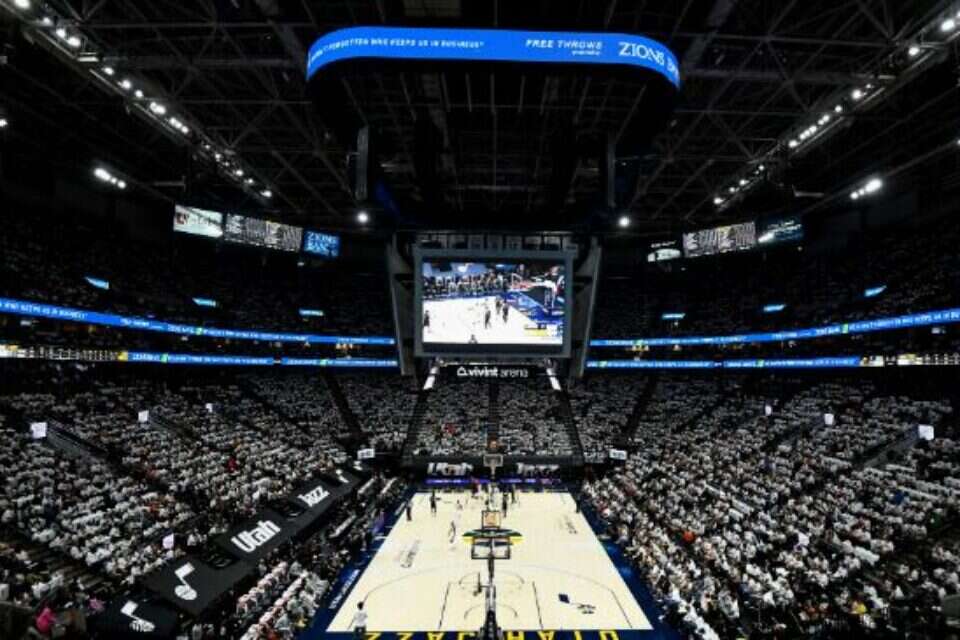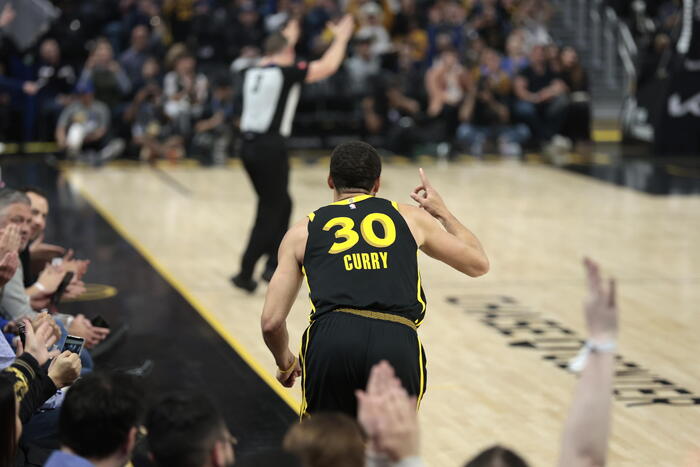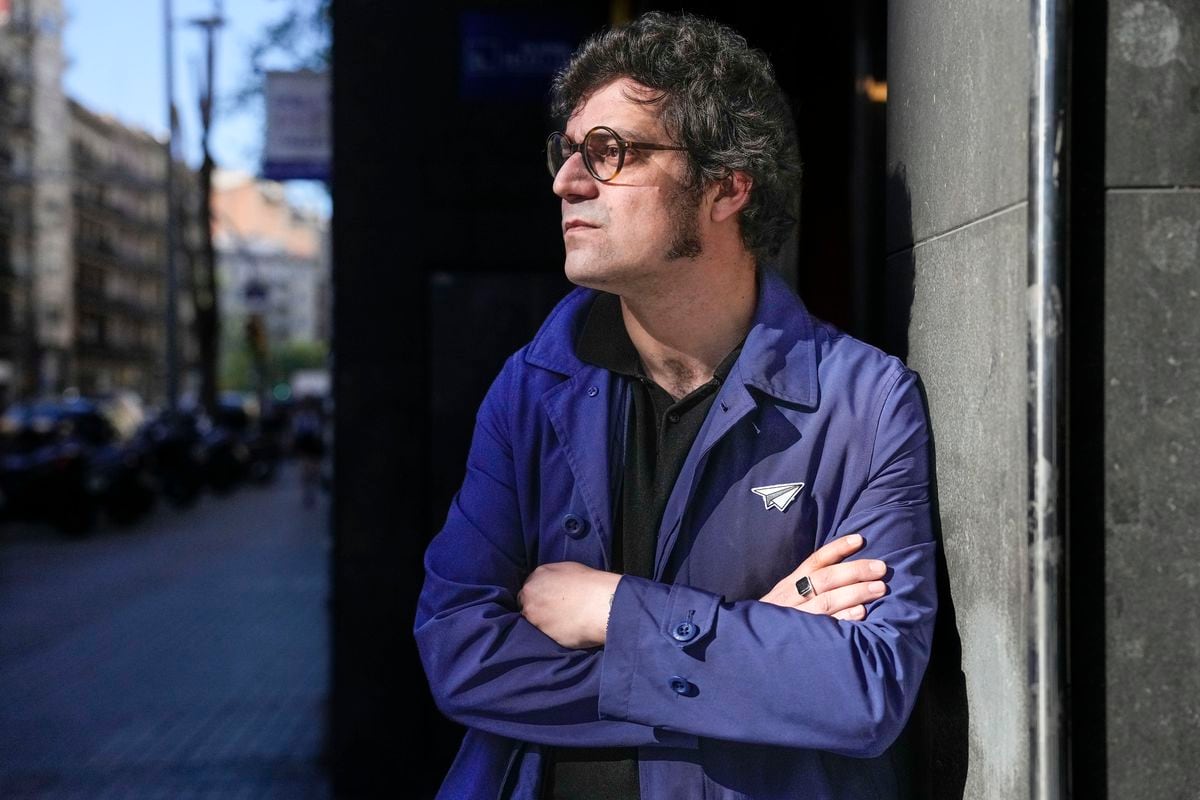A few years ago, Rachel Picado went to watch the Utah Jazz basketball team play in Salt Lake City with Israeli diplomat Eitan Na'a, who was visiting from Los Angeles.
In the closing seconds of the game, in which the Utah Jazz won, the two heard a familiar song playing through the speakers at the Vivente Arena sports hall where the local team plays.
"We looked at each other in amazement: why are they suddenly playing 'Let's Reveal'?"
Picado remembered.
She asked the Utah Jazz crew members who hosted her band to explain the musical choice, and they "did not understand what was difficult for us to understand," Picado said.
"They said, 'What, isn't this a song for celebrations? Are we celebrating victory. Isn't that a song suitable for that?'" She recounted.
Many professional sports teams have a regular song that they play after home wins.
The Yankees play Frank Sinatra's "New York, New York."
The Dodgers and Lakers from Los Angeles are entertaining their fans with "Ai Love LA."
Of Randy Newman, while the Clippers, also from Los Angeles, prefer Tupac Shakur's "California Love."
And for more than a decade, Utah Jazz has been celebrating home victories with "Let's Reveal," the same Jewish chant that has no visible connection to either Utah, jazz or the group.
Since the team has no Jewish players, and operates in an area where relatively few Jews live, the choice of this song has puzzled and amused basketball fans in Utah and beyond for a long time.
The Utah Jazz management, when asked to explain the phenomenon, noted the song's 'recorded rhythm'.
Rabbi Samuel Spector heads the largest synagogue in Utah, the Kol Ami Congregation in Salt Lake City, Photo: Courtesy of Spector
"The cheers of the fans and the catchy rhythm of the song have proven themselves as a popular way to mark a victory for the jazz," wrote Madeleine Crandall, the group's community relations manager.
Although the Utah Jazz players are the ones who dictate the list of songs that will be played during the warm-up before the game and during the half-time break, there are two senior employees in the team whose job it is to select the music played during the game.
"Let's revelation," he and no one else, serves as the victory song "since they remember," Crandall said.
"The consensus is ... that it gives a sense of celebration and fun and it just stays."
DJ John, the team's official DJ, whose role, as he recently described in an Instagram video, is to "sample the atmosphere" at Vivent Stadium, said the tradition preceded his entry into the team service.
"I don't really know how this tradition started, but for jazz fans it's a great ending to a winning game," he said.
What do Utah Jews think about the group adopting a song with deep Jewish roots?
"It's a little different, I must point out," said Rabbi Samuel Spector, who heads the largest synagogue in Utah, the Kol Ami congregation in Salt Lake City.
"I hope it creates in people a good association with Judaism and the Jewish community, if they associate our music with fun and victories."
Today there are eight synagogues in Utah and about 6,500 Jews live there;
About a quarter of them belong to the Kol Ami community, which is affiliated with both the Conservative movement and the Reform movement.
In contrast, according to church statistics, more than two million residents - that is, two-thirds of the country's population - belong to the "Christian Church of the Late Saints," known as the Mormon Church.
Spector says the ties between the tiny Jewish minority and the Mormon majority in Utah are good.
"They were very generous to us, always happy to help and always had great friends," he said.
"Even when there are disagreements between us, it is not a serious enough argument that will overshadow the friendship between us."
Picado, who works in health insurance and came to the game with the Israeli diplomat, said she felt more comfortable as a Jew in Salt Lake City than in Seattle, where she had lived before and encountered "a lot of very strong anti-Israel sentiment that definitely flowed and affected the Jewish community."
She noted that the Mormon Church helped to honor Jewish history in the country by helping, for example, establish a historic memorial to the Jewish pioneers who established an agricultural colony in Clarion, in central Utah, in 1911.
Ryan and Ashley Smith, owners of the Utah Jazz Group, are members of the Mormon Church, as were the previous owners, Larry and Gail Miller.
Like many groups in the NBA, the group holds a Jewish heritage every season, usually during Hanukkah.
Since 2015, the local Chabad emissaries, Rabbi Bnei Tzipel and his son, Rabbi Avraimi Tzipel, have been holding Hanukkah candle lighting ceremonies during the halftime break of these games. Avraimi sings "Maoz Tzur".
Rachel Picado and Eitan Naa in a game of Utah Jazz, Photo: Courtesy of Picado
The song "Let's Revelation," first performed in Jerusalem in 1918 to celebrate the Balfour Declaration, combines words adapted from the Book of Psalms - "Revelation and Joy" - with a chassidic melody.
Over time, according to scholars Edwin Seroussi and James Lefler, it became a song of Zionist youth movements a regular tune at Jewish weddings, and a "general hymn of joy."
This is probably why it is often played at sporting events in the United States and in Europe.
"It was once perceived as an exciting Zionist anthem, so much so that it was banned from being performed in parts of the Arab world," said Leffler, a lecturer in Jewish history at the University of Virginia.
"Today, thanks to his presence everywhere, he has become 'furry' to the point of post-Jewish kitsch."
Still, there are Jewish basketball fans who have said they feel uncomfortable using the song to praise a non-Jewish team.
"I think it's not appropriate for any NBA team to use a song of any culture as a victory song, and all the more so when it comes to a club in the city with no real connection to the culture that this song represents," said John Kaufman, a fan who runs a sports souvenir shop On eBay and follows Utah Jazz devoutly from his home in Portland.
"If they were celebrating with a Mormon song, it would make some sense."
But the fact that the group "takes something cultural that is not theirs, and appropriates it at will, is just not right."
White Daust, a journalist and videographer who lives in Salt Lake City and covers the NBA, does not interfere with the use of the song.
On the contrary, Daust, who is Jewish, said that the Jewish community and other minority communities "should be open to things of this kind when appropriate, as long as the cultural elements referred to them are not out of context or abused, and I do not think that is the case here."
Rabbi Avraimi Tzipel has been going to the team's games for 25 years, and although he was forced to miss the third and fourth games of the final series against the Dallas Mavericks because of Passover, he did not lose hope of seeing his team win its first championship one day.
"I look forward to Game 7 of the NBA Finals, soon in our day," he said, "and that the jazz will play 'Let's Reveal' and the Larry O'Brien Cup [NBA Championship Cup] will be hoisted in the air."
Were we wrong?
Fixed!
If you found an error in the article, we'll be happy for you to share it with us















